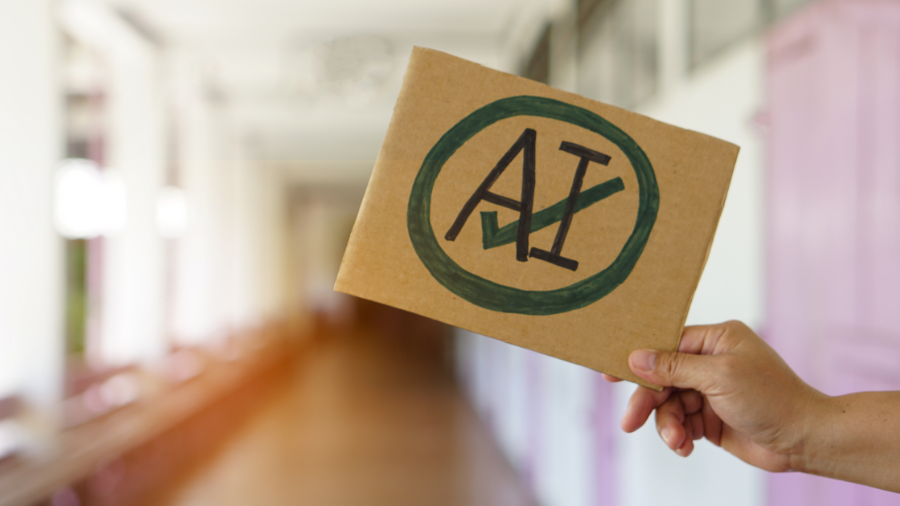August 11, 2025
5 min read
TheoSym Editorial Team
Responsible AI: Ensuring Fairness in a Data-Driven World
Artificial intelligence shapes decisions that impact nearly every aspect of modern life—from whether you qualify for a loan to the news you see. But beneath the surface lies a critical question: are these decisions fair? AI does not operate in a vacuum. It reflects the data it is trained on and the priorities of its creators. When fairness is overlooked, the consequences extend far beyond algorithms, affecting real lives and trust in technology itself. This article explores the complex questions around fairness in AI: Who defines it? Why is bias so difficult to eliminate? And how can transparency and adaptability create systems that not only work but work responsibly?What is Responsible Artificial Intelligence?
Responsible AI is the practice of designing, developing, and deploying AI systems that prioritize fairness, accountability, transparency, and inclusivity, while minimizing harm and ensuring positive societal impact. It is a framework built on trust and accountability, focused on creating systems aligned with ethical principles, respecting human rights, and adapting to society’s evolving needs. The key principles include:Fairness
Fairness means ensuring AI systems do not reinforce existing biases or create new ones. This requires careful evaluation of data and outcomes, especially in sensitive areas like hiring, healthcare, and policing. The goal is to treat individuals equitably regardless of background.Transparency
Transparency enables people to understand how AI makes decisions, which is critical for building trust. It involves clear documentation, explainable processes, and communication accessible to non-technical audiences. For example, a transparent lending AI explains why an applicant was approved or denied.Accountability
Organizations must take ownership of AI decisions and implement mechanisms to correct errors or misuse. This includes review processes and defined oversight roles.Inclusivity
Inclusivity means designing AI systems that consider diverse user groups and address underrepresented communities’ needs. Without it, AI risks amplifying systemic inequalities.Why Responsible AI Matters

- Building trust: People engage more with AI they understand and trust. Responsible AI fosters this through transparency and fairness.
- Preventing harm: AI without ethical oversight can cause real damage, such as biased hiring or discriminatory lending.
- Long-term value: Responsible AI keeps systems relevant and adaptable as societal values evolve, reducing obsolescence risk.
- Developers: Use data that often reflects historical inequalities. Even well-intentioned algorithms can unintentionally favor some groups.
- Policymakers: Aim to align AI with societal values but struggle to keep pace with rapid tech changes.
- Communities: Those most affected by AI decisions often have the least input on what fairness means.
- What’s fair today might not be tomorrow.
- Societal values shift, and AI must adapt accordingly.
- Data selection: Who decides which data to include or exclude?
- System priorities: What goals are embedded in the algorithm?
- Acceptable outcomes: Who defines what fairness looks like? These choices often reflect unconscious biases, meaning prejudice can enter systems long before deployment. Addressing bias requires more than technical fixes. Diverse datasets and development teams are essential. Broader perspectives challenge assumptions and highlight overlooked issues, ensuring AI reflects aspirational values, not just past flaws.
- Why an AI made a decision: What factors influenced the outcome?
- How data is used: Are sources reliable and diverse?
- What safeguards exist: How are errors and biases addressed? Without transparency, trust crumbles. Imagine being denied a loan with no explanation or unfairly flagged by AI. Transparency provides clarity and a sense of control. More than trust, transparency fosters accountability. Organizations that openly explain data sources, decisions, and fairness measures set the stage for ethical AI adoption.
- Regular audits to ensure alignment with current fairness standards.
- Feedback loops allowing users to flag unfair outcomes and suggest improvements.
- Dynamic updates to adjust to new regulations or societal shifts.
Who Decides What’s Fair in AI?
Fairness is not universal; it is shaped by culture, context, and perspective. Defining fairness in AI is challenging.Who Gets to Decide What’s Fair?
Is it developers coding algorithms, companies funding them, or policymakers crafting regulations? Each has a unique perspective, but leaving fairness to only one group can create blind spots.Why Fairness Isn’t a One-Group Job
Fairness Evolves Over Time
The Solution? Diverse Perspectives
Involving voices from various communities, industries, and cultures is crucial. Without this, fairness risks being narrowly defined and failing to serve everyone equally.Why Bias Isn’t Just a Technical Problem
 Bias in AI goes deeper than faulty code; it starts with the data AI relies on. When datasets reflect past inequalities—whether in recruitment, law enforcement, or healthcare—AI absorbs and can amplify those patterns.
For example, a hiring tool trained on biased recruitment data may perpetuate or worsen discrimination.
Human decisions shape every stage of AI development:
Bias in AI goes deeper than faulty code; it starts with the data AI relies on. When datasets reflect past inequalities—whether in recruitment, law enforcement, or healthcare—AI absorbs and can amplify those patterns.
For example, a hiring tool trained on biased recruitment data may perpetuate or worsen discrimination.
Human decisions shape every stage of AI development:
Can Transparency Make AI More Trustworthy?
Trust in AI depends on understanding how it works. When people see the reasoning behind AI decisions, confidence grows and fear of the unknown diminishes. The challenge: how to explain complex systems without overwhelming users? Transparency means showing:Building AI Systems That Adapt to Evolving Fairness Standards
 Fairness is not static; it shifts as society changes. AI systems cannot rely on fixed rules forever—they must evolve with our understanding of equity and justice.
Designing adaptable AI involves:
Fairness is not static; it shifts as society changes. AI systems cannot rely on fixed rules forever—they must evolve with our understanding of equity and justice.
Designing adaptable AI involves:
Final Thoughts
As AI continues to shape industries and influence millions of decisions, it must meet the highest standards of fairness, accountability, and transparency. Failure risks not only technological errors but also loss of trust in systems meant to improve lives. The journey toward responsible AI demands collaboration, introspection, and innovation. It requires rethinking AI design and implementation to reflect societal values. Every step matters in creating systems that truly serve everyone. At TheoSym, we recognize that every business faces unique AI challenges and opportunities. If you seek powerful, ethical AI solutions, contact us for tailored strategies that prioritize responsibility. Book a call today.Originally published at TheoSym on January 1, 2024.
